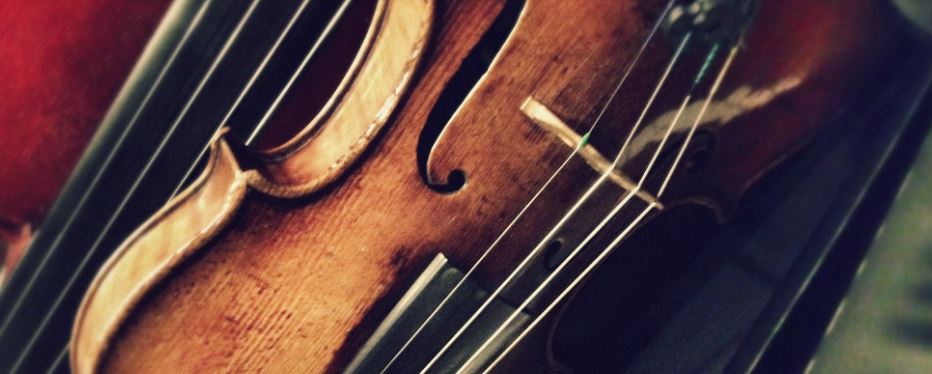The trio consists of Sharyn Peterson on violin, Mannfried Funk on cello and Mayumi Tayake on piano.
All three of the musicians have accomplished careers performing all over the world under great conductors. They formed the chamber ensemble less than a year ago so Petersburg was one of their first concerts together.
In the Petersburg home’s library, the trio performed three long pieces, each lasting about thirty minutes. This piece is called, Autumn.
Cellist Mannfried Funk says the audience was fantastic.
“We were drawing energy from them,” Funk says. “They were right there with the music paying attention and really engaged and that made it better for us too as performers. We feed off that energy, we can feel it as well.”
The trio also stopped by the schools while they were in town. They played for the students and talked to them about music. One of the most common questions they get asked is, “How long does it take to get that good?”
“That’s a difficult question to answer because there are things called child prodigies where they learn very quickly,” Funk says. “It really has everything to do with attention, and ability to remember things, and attitude. Attitude is so important.”
All three of the musicians have their own story. Funk started playing the cello at age five at the San Francisco Conservatory of Music.
Sharyn Peterson picked up the violin in the second grade. She started with the piano at age five but once the violin was in her hands that was it.
“I really did fall in love with it and I haven’t been able to let it go,” Peterson says.
Mayumi Tayake started playing the piano at age five in Japan. She says she wasn’t really that into it until she came to the States at age 10 and couldn’t speak English.
“Music sort of became a way for me to share my emotion,” Tayake says, “so, I think that’s how I really got into it.”
Obviously, most children can’t seek out musical instruction on their own. As Peterson puts it, “the influence of an encouraging parent is absolutely necessary.” But there is a big difference between encouraging music and demanding it.
Tayake says she had what’s known as a “Tiger Mom”.
“My mom was very strict about me practicing and she would actually lock me in a room to practice a certain amount of hours,” Tayake says. “I think that actually took away the joy (laughs) but once I got into high school I met my mentor and she just showed me what’s so great about music and what’s so fun about learning piano. And that just…I didn’t need anybody else to tell me to practice anymore.”
The group agrees that it takes finding a good balance between supporting a child and giving them enough space to make some decisions.
As adult musicians, the three get to call the shots. And they have decided to seek the intimate setting that a chamber ensemble allows.
“Ultimately, I think good musicians really want to do chamber music,” says Funk.
But it’s not that easy. They have to find places to play which usually don’t include large crowds, at least in the beginning. Financially, it’s not very beneficial but Funk says the rewards are great.
“If you look at the repertoire through time, you’ll find that the composers put some of their best efforts into the chamber music,” Funk says, “and it’s really a laboratory for them to experiment and develop their own skills.”
Peterson says it’s a give and take. It requires them to cooperate.
“You’re basically one of three soloists,” Peterson says, “and I love being a soloist because there’s a lot more expressive content that is permitted for a soloist than there is for an orchestral musician.”
Tayake, the pianist, agrees. She says playing in a chamber ensemble brings her closer to other musicians.
“It’s a perfect place for you to share your idea with fellow musicians and be able to create music together with other people because as a pianist in an orchestra you just become a drum. You play bum bum bum, and that’s pretty much it,” Tayake says.
Not all musicians can just make a chamber ensemble. Their personalities must mesh.
“So, you end up looking for people who first of all can play together, have the ability too, and also the personalities that can work together, just like a three way marriage,” Funk says.
Fine tuning that over the years is something that benefits not only the musicians but the audience as well.
Trio Seattle played in Petersburg last month as part of KFSK’s fund drive and honoring long-time volunteer Ruth Sandvik who helped host “It’s Classic” along with Alice Longworth.











